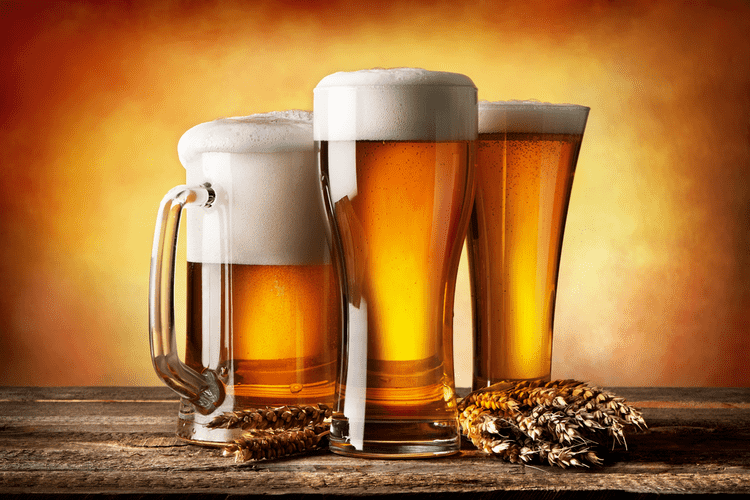Content
It makes you aware of triggers and may motivate you to seek additional help from a counselor or support group. Participating in ongoing treatment methods provides you with a greater chance for long-term sobriety than those who do not continue recovery with maintenance programs.
Or their environmental influences may prevent the expression of their inherited genes. If their body reacts poorly to moderate amounts of alcohol, they are less likely to develop AUD. Like alcoholism, diabetes can “run in families.” Also like alcoholism, the trend of diabetes in a family can end if one person in the lineage decides to keep himself or herself out of harm’s way. Someone suffering from alcoholism is unable to stop drinking without going through withdrawal. But withdrawal symptoms usually thwart any chances of becoming sober. The predisposition toward alcoholism is genetic, as there are certain genes that affect risk. Genetics play a significant role in the risks of alcohol dependence and addiction.
Therefore, they are more likely to become alcohol dependent. If you or a loved one is struggling with an alcohol use disorder, help is only a phone call away. Contact a treatment provider now to learn about available treatment options. Varied Serotonin Levels — Abnormal levels of serotonin in the brain have been linked to a genetic predisposition to alcoholism. This could be because not everyone inherits their parent’s genes linked to AUD.
Genetic Variation
A person will drink to regain that feeling of euphoria experienced in phase 1; the drinking will increase as more intoxication is required to achieve the same effect. Mental health as a risk factor for alcohol dependency or abuse. “Genes explain approximately 50% of cases of alcohol use disorder,” says David A. Fiellin, MD, director of the Yale Program in Addiction Medicine. One answer could be that the genetic makeup of the plant on the right side of the house is programmed so that it will grow taller than the plant on the left side of the house.
Problems with alcohol? 29 gene variants may explain why – Yale News
Problems with alcohol? 29 gene variants may explain why.
Posted: Mon, 25 May 2020 07:00:00 GMT [source]
The environment a person was exposed to growing up and a person’s current environment are both important factors. Some genes are linked specifically to alcohol addiction and others are linked to addiction in general.
Signs And Symptoms
The DNA that your parents pass on to you dictates your physical and behavioral traits. If they have alcohol use disorders, then you have a risk of developing a drinking problem too. This risk is higher than for someone whose parents do not have alcohol addiction problems.
In this What If, Tony recognizes the hereditary defects he'd rather not pass to a child (alcoholism, depression, megalomania, an exciting but ultimately dangerous tendency to install jets in places they shouldn't be)
— stark disassembled quote bot (@disassembledbot) December 3, 2021
It helps distinguish a diagnosis of alcohol dependence from one of heavy alcohol use. The Alcohol Use Disorders Identification Test , a screening questionnaire developed by the World Health Organization, is unique in that it has been validated in six countries and is used internationally. Like the CAGE questionnaire, it uses a simple set of questions – a high score earning a deeper investigation. The Paddington Alcohol Test was designed to screen for alcohol-related problems amongst those attending Accident and Emergency departments. It concords well with the AUDIT questionnaire but is administered in a fifth of the time. According to Adinoff, the only way to prevent AUD is to never drink alcohol. However, minimizing environmental factors that increase the risk, decreasing the availability of alcohol, and maximizing protective factors can help reduce the likelihood of developing AUD.
Is Alcoholism Hereditary What The Research Shows
From birth, each subject presented predetermined beta-endorphin levels. However, children of this population group aged between 6 months and 10 years old, registered lower beta-endorphin levels than other children of the same age. “These levels were even lower in children whose both parents were alcohol abusers”, the researcher states. Growing up around family members and close relatives that suffer from alcoholism increases the risk of alcohol abuse for generations to come.

The first step in ethanol metabolism is oxidation to acetaldehyde, catalyzed primarily by ADHs; there are 7 closely related ADHs clustered on chromosome 4 . The second step is metabolism of the acetaldehyde to acetate by ALDHs; again, there are many aldehyde dehydrogenases, among which ALDH2 has the largest impact on alcohol consumption20. “Those biological insights are critical to potentially developing better strategies for prevention and treatment of alcoholism and related psychiatric disorders,” he said.
What The Research Shows About Alcoholism And Genetics
Smaller amygdalas are common in people with a family history of alcoholism. A 2018 study also showed that genetic factors account for 40 to 60 percent of the reason people develop AUD.14 Since that study, specific genes were identified that link with the development of the disorder. The role of environment in AUD is also seen when comparing people with parents who are addicted to alcohol versus other family members. Growing up around people with addiction makes someone more vulnerable to developing AUD. Children of people with AUD have a significantly higher risk of developing the disorder themselves. When a family member is an alcoholic, you see the negative side of drinking. But many people do not realize that you do not have to be a full-fledged alcoholic to suffer the negative effects of heavy drinking.
- Women who have alcohol-use disorders often have a co-occurring psychiatric diagnosis such as major depression, anxiety, panic disorder, bulimia, post-traumatic stress disorder , or borderline personality disorder.
- Healing Spring Ranch’s peaceful setting only an hour north of a Dallas alcohol rehab and northeast of DFW airport includes 50 acres of Texas quarter horse ranch land.
- Mutual-aid group-counseling is one approach used to attempt to prevent relapse.
- However, as the relationship progresses and you get to know each other better, if you notice that the drinking behaviors are problematic and don’t say anything, your inaction is enabling the problem to continue.
- Just like alcohol addictions, all substance use disorders have environmental influencers as well.
Seitz HK, Meier P. The role of acetaldehyde in upper digestive tract cancer in alcoholics. Interaction between the functional polymorphisms of Transitional living the alcohol-metabolism genes in protection against alcoholism. Higuchi S. Polymorphisms of ethanol metabolizing enzyme genes and alcoholism.
Alcohol Withdrawal
Genes related to alcohol metabolism are known to have strong effects on risk; there are functional variants of ADH1B andALDH2 that are protective against alcoholism, with odds ratios in the range of 0.2 to 0.4. Feb 26, 2021 Alcohol Intervention Recognizing the Behaviors of an Alcoholic If alcohol were the only problem, families would most likely not be as affected as they are. There would be no treatment centers and no addiction counselors.

Alcoholics Anonymous was one of the earliest organizations formed to provide mutual, nonprofessional counseling, and it is still the largest. Others include LifeRing Secular Recovery, SMART Recovery, Women for Sobriety, and Secular Organizations for Sobriety.
Contact a health care provider if you have questions about your health. Peyote, a psychoactive agent, has even shown promise in treating alcoholism. Alcohol had actually replaced peyote as Native Americans’ psychoactive agent of choice in rituals when peyote was outlawed.
For example, many researchers have examined whether or not a person’s proximity to alcohol retail stores or bars affect their chances of alcoholism. People alcoholism genetic statistics who live closer to alcohol establishments are said to have a more positive outlook on drinking and are more likely to participate in the activity.

However, when these activities include alcohol, it can be a dangerous mix. However, researchers need more information before reaching any solid conclusions about alcohol tolerance and CYP2E1. Tolerance to alcohol has developed and they must drink more and more to gain the same effect. They cannot control the amount they drink and lose control of life because of drinking. We know the struggle, which is why we’re uniquely qualified to help. Levey, D., Le-Niculescu, H., Frank, J., et al. “Genetic risk prediction and neurobiological understanding of alcoholism.” Translational Psychiatry, 2014. Verywell Mind uses only high-quality sources, including peer-reviewed studies, to support the facts within our articles.
Environmental factors, personal metabolism and biological aspects, and social influences can all contribute to the development of the disorder. The diverse study sample is notable, in that it included more than 50,000 African-Americans, one of the largest genome-wide studies of this population. Scores from the Alcohol Use Disorder Identification Test-Consumption (AUDIT-C) screenings and AUD diagnoses were obtained from the same population to conduct the GWAS for the two traits. The researchers also analyzed other data from health records to look for correlations between genes and diseases, as well as other non-alcohol related traits. People with maladaptive family dynamics are more likely to abuse substances. They’re the people you depend on for survival and your sense of self when you’re a young child. When those relationships are unhealthy, the impact can be profound and lead to behaviors like substance abuse, eating disorders, and other negative coping mechanisms.

In fact, genetics are up to 50 percent responsible for the development of alcoholism. However, other factors also play a role in a person’s risk of developing an alcohol use disorder. Alcohol addiction has been directly linked to some genetic factors. Individuals with a family history of alcoholism are far more likely to develop the condition themselves than people with no alcohol addiction in their family. Regardless of whether a person’s genetics is to blame for his or her alcohol addiction, seeking treatment is the best way to overcome alcoholism and reclaim life in sobriety. The topic of genetics and an alcohol use disorder only underlines the complexity of alcohol abuse.
A complex combination of genetic and environmental factors influences the risk of the development of alcoholism. Genes that influence the metabolism of alcohol also influence the risk of alcoholism, as can a family history of alcoholism. There is compelling evidence that alcohol use at an early age may influence the expression of genes which increase the risk of alcohol dependence. These genetic and epigenetic results are regarded as consistent with large longitudinal population studies finding that the younger the age of drinking onset, the greater the prevalence of lifetime alcohol dependence. Long-term misuse of alcohol can cause a wide range of mental health problems.


